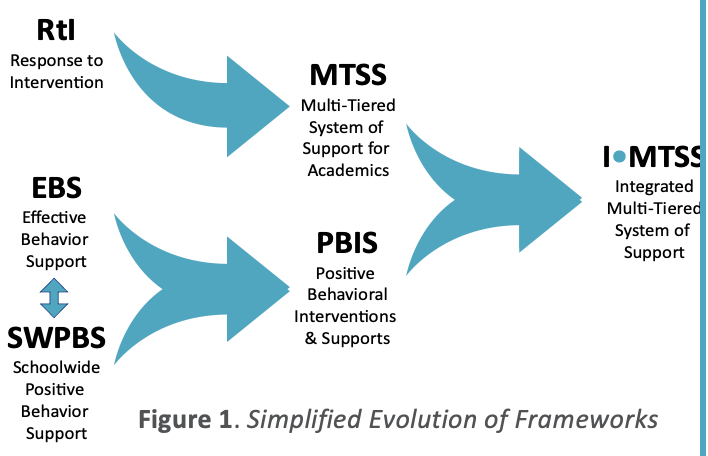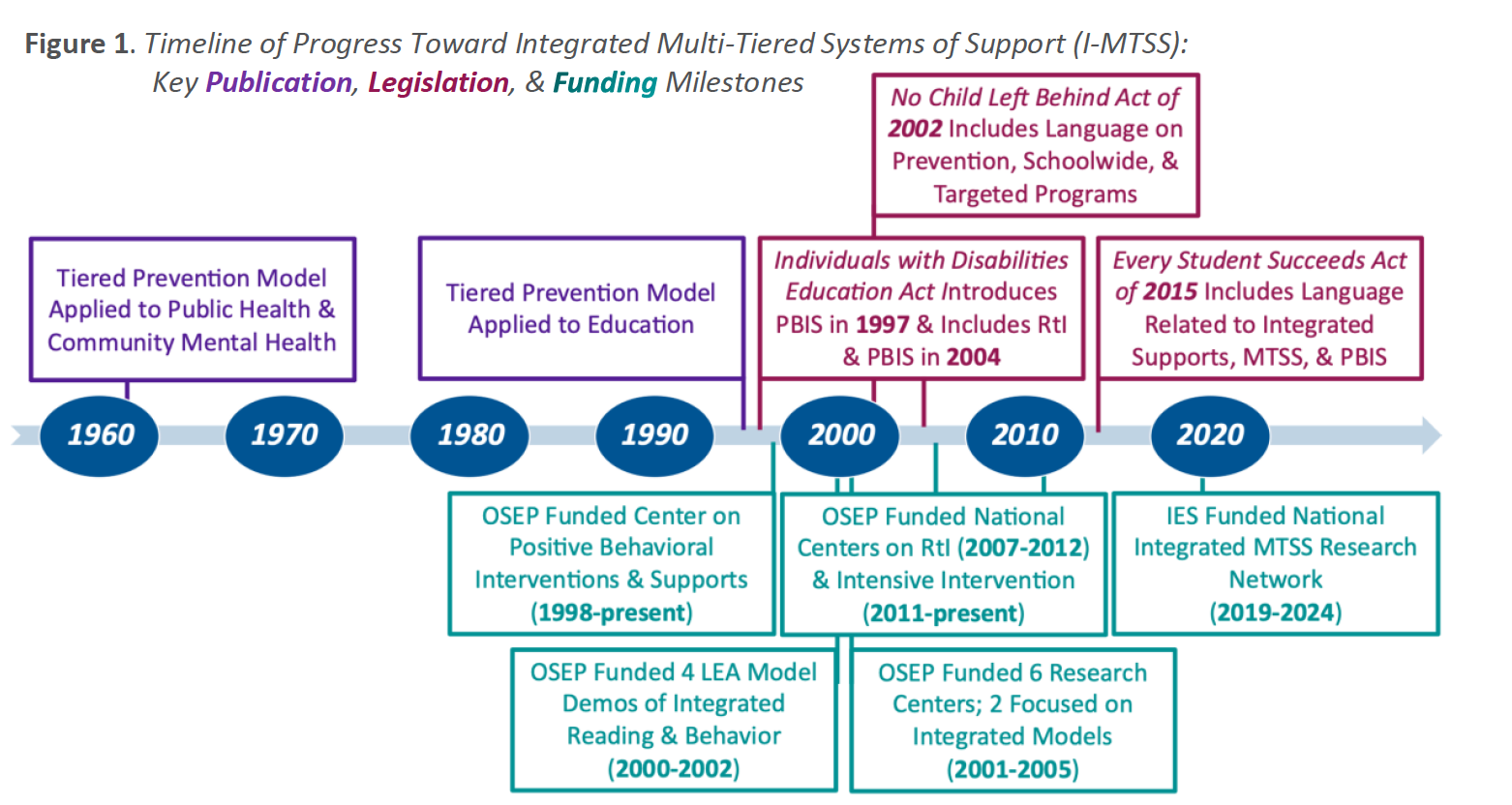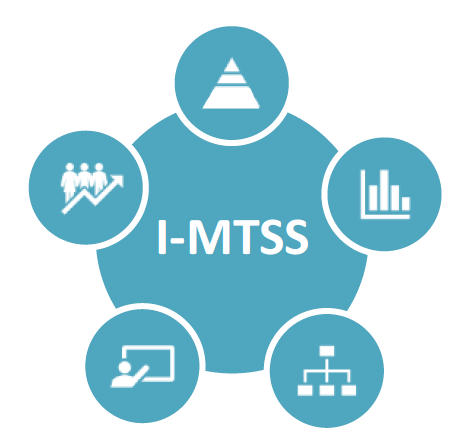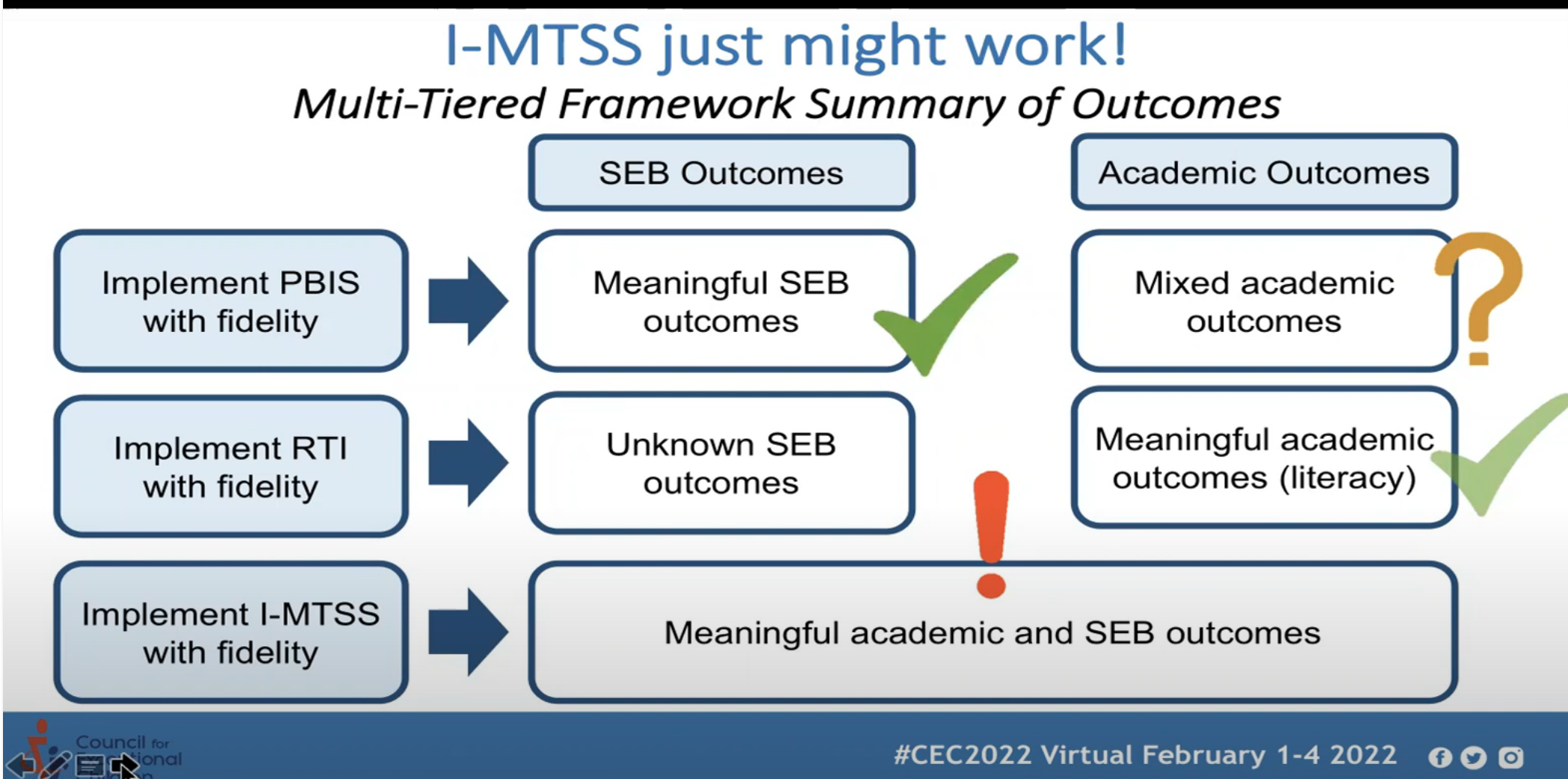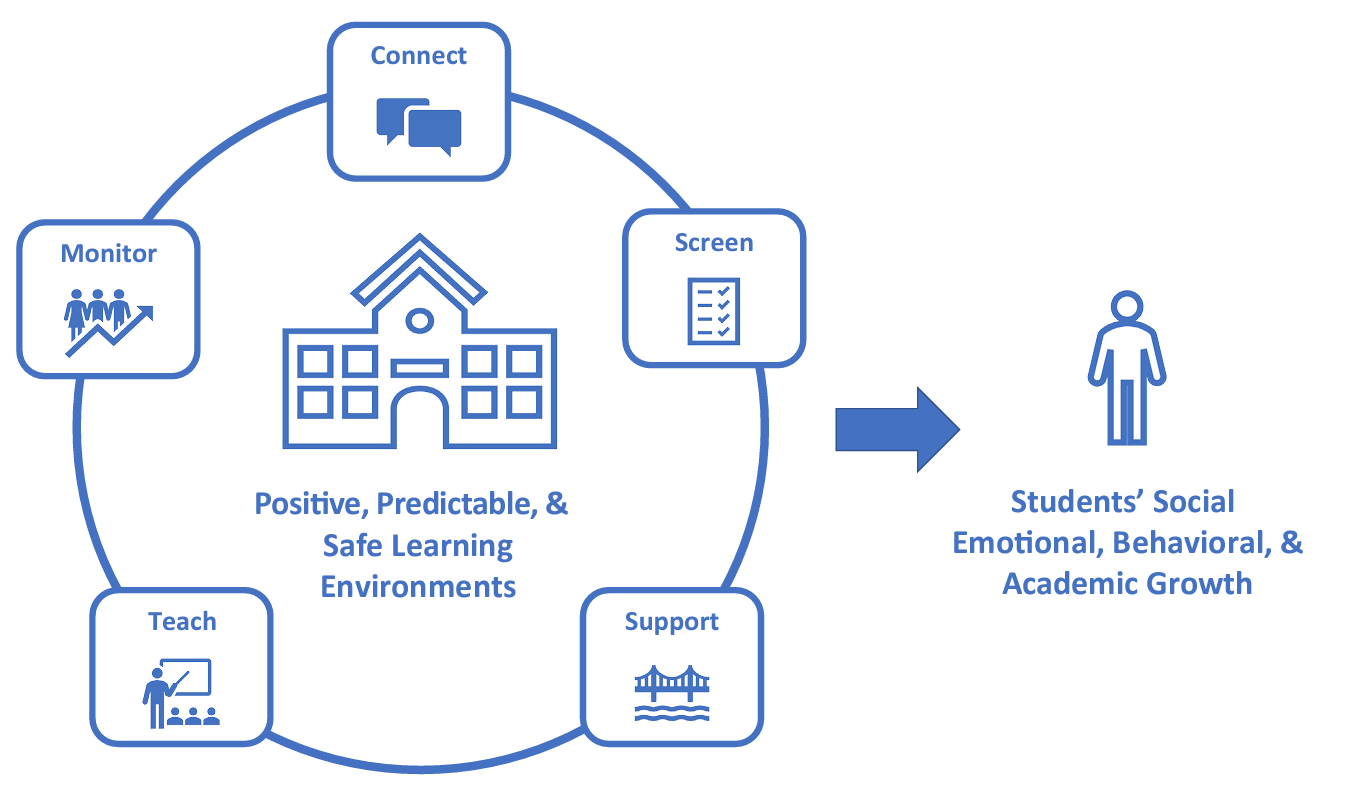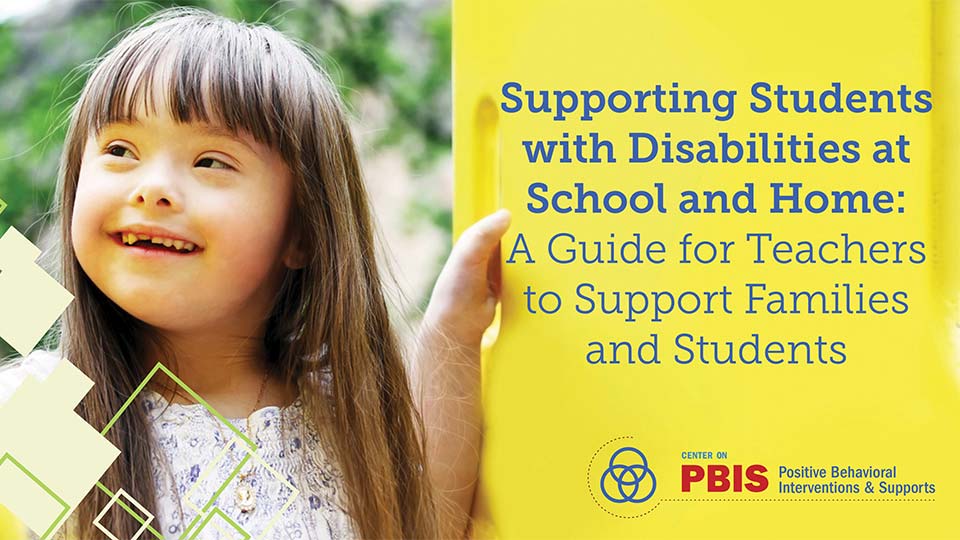RESOURCES
Does Research Support an Integrated Multi-tiered System of Support Framework?
In this brief, we offer a structure for considering what we know, and what we still need to learn, from research on the
effects of organizing evidence-based practices within an integrated multi-tiered system of support (I-MTSS) framework.
What is the Current State of I-MTSS Implementation in the United States?
In this brief, we discuss the current state of integrated multi-tiered systems of support (I-MTSS) implementation, as defined by the I-MTSS Research Network (2023), in the United States (U.S.).
Integrated Multi-Tiered System of Support: What’s in a Name?
In this brief, we consider, “What’s in a name?” Specifically, we discuss how (a) educators have described tiered prevention frameworks and (b) their language has evolved in behavioral, academic, and integrated domains.
Brief History of I-MTSS: Major Milestones Toward an Integrated Framework
Many schools, districts, and states now organize support within an integrated multi-tiered system of support (I-MTSS) framework. In this brief, we highlight major milestones in publication, legislation, and funding that have propelled educators toward an I-MTSS framework
What is an Integrated Multi-Tiered System of Support?
This brief defines an Integrated Multi-Tiered System of Support (I-MTSS) as a comprehensive and equitable prevention framework for improving the outcomes of all students, including students with or at-risk for disabilities, through integrated academic and behavioral support. Key components of an I-MTSS framework are identified and explained.
IES MTSS-B Trial: Key Takeaways for District and State Leaders
The purpose of this brief is to review the latest randomized controlled trial (RCT) examining effects of positive behavioral interventions and supports (PBIS), an example of a multi-tiered system of support for behavior (MTSS-B), on a range of student outcomes. We share findings and key takeaways from this new study, in the context of the broader research literature, to guide local educational agency (LEAs) and state educational agencies (SEAs) in their use of MTSS to improve student outcomes.
Integrating Academic, Social, Emotional, Behavioral, and Mental Health Supports for Student Need
There is a strong relationship between academic skills and students’ social-emotional-behavioral functioning. A greater opportunity for meaningful outcomes occurs when social-emotional-behavioral and school-based mental health supports are integrated with academics through a multi-tiered framework. This presentation was provided for the Council for Exceptional Children in February 2022.
Supporting Schools During and After Crisis: A Guide to Supporting States, Districts, Schools, Educators, and Students through a Multi-Tiered Systems of Support Framework
This guide describes the use of a multi-tiered systems of support (MTSS) framework, like positive behavioral interventions and supports (PBIS), to restart classrooms and schools in a manner that all students, families, and educators are supported effectively, efficiently, and relevantly. This guide is not a primer on MTSS or PBIS. (For a basic introduction, visit PBIS.org.6) This guide is a set of considerations for experienced leadership teams to enhance, adjust, or adapt state, district, school, and classroom action plans to (a) meet their needs during the phases of crisis response and recovery and (b) return to a safe and positive learning environment.
Supporting Students with Disabilities at School and Home: A Guide for Teachers to Support Families and Students
This guide highlights 5 key practices for teachers and families to support all students, including students with disabilities, at school and home. For each practice, the guide provides (a) tips for teachers to support students with disabilities during instruction; (b) tips for families that educators can share to support or enhance learning at home; and (c) free-access resources that include strategies shown to be effective by research.
Returning to School: Considerations for Students With the Most Intensive Behavioral Needs, A Guide to Supporting Students With Disabilities, Their Families, and Educators
This document is a set of strategies and key practices to restart classrooms and schools in a manner that students, their families, and educators can use effectively, efficiently, and relevantly in the current climate.



